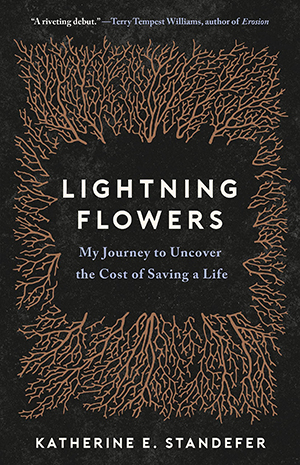UAB School of Engineering Dean Jeff Holmes wasn't sure what kind of response he would get when he invited current engineering students to join a book club during the spring semester of 2021.
 After all, college-level engineering courses require an intense focus on math and science and hours in the lab, where fundamentals learned in the classroom are put into practice. Because of that time commitment and other concerns, would students to join him in what some might see as a decidedly non-engineering-type of activity?
After all, college-level engineering courses require an intense focus on math and science and hours in the lab, where fundamentals learned in the classroom are put into practice. Because of that time commitment and other concerns, would students to join him in what some might see as a decidedly non-engineering-type of activity?
The response was a resounding yes; more than 40 students signed up for the club, which met online via Zoom on Thursday evenings throughout the semester to discuss Katherine Standefer’s 2020 book Lightning Flowers: My Journey to Uncover the Cost of Saving a Life.
Now that the first Dean’s Book Club is in the books, we asked Dean Holmes to reflect on this novel extra-curricular engineering experience.
 Considering everything that has been going on in the past year, what inspired you to create a book club for engineering students?
Considering everything that has been going on in the past year, what inspired you to create a book club for engineering students?
I read Standefer’s book over the winter holiday, and I found myself asking questions that I had never considered before. The book is a memoir of a patient who as a young adult has a defibrillator implanted in her chest due to a genetic heart condition. As a biomedical engineer with a background in cardiac research, I thought I was pretty familiar with these devices, but the author asked questions I had never stopped to consider, eventually visiting not only manufacturing facilities but also mines around the world and addressing issues ranging from sustainability to health care costs and insurance. The more I read, the more I thought it would make an interesting book to read with students who are studying to go into not only biomedical engineering but also materials engineering, mining, medicine, and other fields.
How did you pitch this to the students? I imagine many of them were already signed up for classes that required them to buy a lot of books and do a lot of reading.
I definitely didn’t want this to be a burden on anyone, either financially or in the time investment. The book is less than 250 pages with some fairly short chapters, so I thought meeting once per week would give students freedom to read a little bit at a time. But we also kept it very informal so if someone fell behind, they could still sit in on the meeting and benefit from the discussions.
I wasn’t sure what kind of response I would get, so I purchased 20 copies of the book and offered them for free to the first 20 who responded. I initially planned to cap it at those first 20, but the response was so big, with more than 40 people signing up, I decided to leave it open to as many who wanted to participate. Of course, some came and went as the semester went along, but we had a core group of a dozen or more students who kept things going, and the others joined in as they could.
How did it go? Was their reaction to the book similar to yours?
Not only were their reactions different from mine, there was a wide range of reactions within the group. Even though we are all engineers at some level, the students who participated came from such diverse backgrounds and life experiences that they each brought their unique perspective to the book. Some of them had worked in mining or energy industries in the past, while others had experience as healthcare workers, patients, or family members of people with genetic and chronic dieases.
As I told them in our final meeting, the thing I will remember most is those discussions where we veered away from what we had read in the book and discussed life experiences. When I think about this book in the future, I’ll remember most those pieces of our discussion that may have only marginally related to the book itself.
COVID restrictions meant that the book club was all-virtual. Do you think this is an activity (and format) you might continue post-pandemic?
Absolutely. As long as our students are still interested in participating, I will keep doing this. The first step is to pick a book to discuss, so if anyone has suggestions, please send them along. We may also look at different timelines so that students don’t have to do all of the reading while classes are in session. Next year we might identify a book prior to the winter break so that people can read ahead.
In terms of format, I would love to be able to hold these meetings in person in the future, but I recognize that the online meetings opened this up to a lot of students who couldn’t have made it in person. Some were joining from their research labs while others were graduate students living out of state. While we now know that nobody wants to spend all day on Zoom, the pandemic has opened up new ways for us to meet and collaborate from a distance. So I think Zoom book club might just have a future.